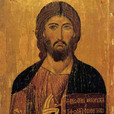
Summary: Taken as a whole, leaders demonstrate a wide array of skills and talent. While great leaders often exhibit some consistent marks, there’s simply no set script they follow. No inventory of essential traits all must possess to excel. Indeed, some great leaders demonstrate contradictory traits from each other. One is gregarious, another reserved. Once is upbeat and energetic, another taciturn and subdued.Many of the Church’s great leaders have been brilliant, their intelligence ranking them as a genius. Others, while being astute, could not be given that lofty epithet. Some had skills that enabled them to accomplish so much, their influence was felt for decades, even centuries, after. Pope Gregory I was of that category. Bruce Shelly says Gregory combined great executive ability with a warm sympathy for the needs of others. Gregory was such a good leader and man, history has given him the title “Gregory the Great.” His tenure as Pope laid the foundations for Medieval Christianity. Since religion played such a central role in European society, Gregory was one of the main architects of Medieval Europe.Born in 540 to a well-established Roman senatorial family, Gregory was groomed from a young age for civil service. But a career in politics at that time was an inordinately difficult proposition. The City of Rome and the lands it had once held hegemony over in the Italian peninsula were like a torn-up soccer ball kicked back and forth by one group after another. The Visigoths were replaced by the Byzantines, who were booted by the Lombards, who did their best to leave Italy a smoldering wreck.As Gregory’s father had been Prefect of Rome & Gregory had trained for govt service, the Eastern Emperor Justin II appointed Gregory to replace the prefect when he retired. He was 33. In all likelihood, it was Justin’s wife Sophia who made the appointment, since the Emperor had gone insane and she was ruling in his place. Not long after Gregory took the office, the Byzantine governor of the region and the reigning Pope, died.Like many young men who train for a position because it’s expected of them, Gregory found that worldly power didn’t appeal to him in the least. He much preferred the solitude of the monastery. So after a few years as prefect, he resigned. When his father passed, leaving Gregory as the heir to a wealthy estate, he used a good part of his fortune to found 7 monasteries, gave the rest to the poor, and turned his mansion into yet another monastery dedicated to St. Andrew; following the Benedictine order. Eschewing all trappings of worldly power that had attended his rank as prefect, Gregory devoted himself to a rigorous asceticism; his diet consisted solely in raw vegetables & fruit. He wore a hair-shirt, prayed most of the night, and applied himself to a diligent observance of his monastic duties. His asceticism was so extreme, it began to weaken his physical frame.Then, in 579, at the age of 39, Pope Pelagius II made Gregory a deacon in the Roman church. This was a position of tremendous influence because the 7 deacons were commissioned with administrative oversight of the Roman Church. Gregory was sent as a papal ambassador to Constantinople, which of course at that time was the new center of what was left of the Roman Empire.He returned to Rome 6 years later and was appointed as abbot over the St. Andrew monastery. Gregory was more than content to serve out what was left of his life in that role. But wider events hijacked his plans.Early in 590, Rome, already hammered by war and flood, found itself in the teeth of a new pestilence; the Black Death, Plague. Rome’s streets emptied as the carts piled higher with the dead. Even Pope Pelagius succumbed.The papal chair remained empty for half a year. Then, Gregory was elected as the new Pope. Instead of rejoicing in his selection, he fled, taking refuge in a nearby forest. Trackers were sent to find him and haul him back. Reluctantly, he a
